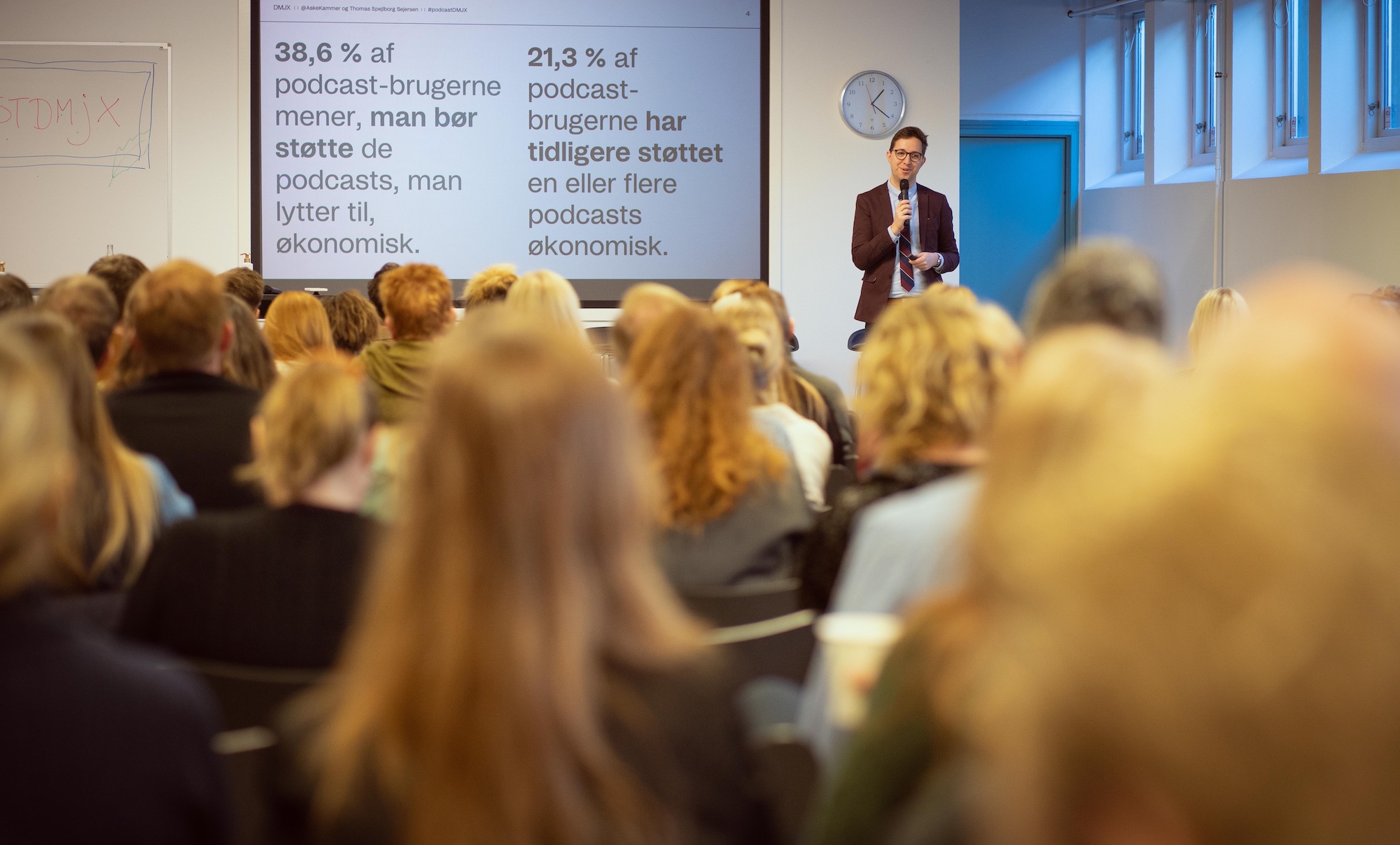Back from the NordMedia 2015 conference in Copenhagen. It is the biannual media researcher conference for the Nordic countries (in 2013, it was in Oslo), and this time (as in Oslo) it was a very good experience. Congratulations to my former colleagues at the Department for Media, Cognition and Communication at the University of Copenhagen for successfully organizing the conference – in particular, I applaud the efforts of Anne Jerslev and Christa Lykke Christensen, who served as chairs of the organizing committee.
On the conference, I presented two of the projects I am currently working on.
First, I had organized a panel on “Journalism and Social Media”, where Ulrika Hedman (Gothenburg University), Anders Olof Larsson and Christian Christensen (Oslo University and Stockholm University, respectively), and I presented our research on, well, journalism and social media. While the papers by Ulrika and Anders/Christian were empirical pieces with analyses of large data sets, my own paper was of a rather theoretical character, discussing the relationship between the private, the personal, and the professional on journalists’ social media profiles. It was very much a work-in-progress, but I expect it to be a finished article ready for submission to a journal later this year.
I know Anders from my visiting fellowship at Oslo University earlier this year, and Ulrika and I have kept on online conversation going for the last couple of years since our research interest into social media journalism are very closely connected (but for some peculiar reason we had not actually met in persons before the NordMedia conference – very nice to finally do so). For me, it was quite a “dream team” of scholars that participated in the panel, and the presentations certainly met my high expectations. All in all, I think the panel was a success – not least thanks to the insightful questions and smart comments from the audiences.
@Nordmedia2015 final morning journalism paper: @AskeKammer on Public/Private & Journalism on Soc Media #nordmedia2015 pic.twitter.com/35DEc0Rz1y — Michal Krzyzanowski (@MichalTweets) August 14, 2015
Here is the proposal for the panel:
As social media have proliferated extensively over recent years, they now play an increasingly important part in journalistic practices and in the workings of news organizations. Having a de-centralized and distributed character, social media constitute a very different communicative structure than traditional mass media, which are built upon the logic of one-to-many communication. Hermida (2014), for example, identifies Twitter as an “ambient news network” because of the constant and multi-directional exchange of information, journalism, opinions, and social intelligence on the social medium. Furthermore, journalists are not the only ones on social media conducting journalism, and not all activities performed by journalists on social media are of a journalistic nature.
So, the established order of journalism is challenged since social media induce alternative, more personalized, ways of expressions and flows of public communication into the workings of the mass media system. The questions, then, are how actors, organizations, and institutions rooted in the “old” media system accommodate to the “new” media platforms, and how their routines and practices change because of them.
The panel brings together researchers from Norway, Sweden, and Denmark. It consists of three papers, which complement each other in approaching the how social media influence journalism and the ways news media and news workers work from different perspectives (participatory practices, “social media logics”, sociological role theory) and with different methodological frameworks (content analyses, case studies). Together, they address the multi-facetted responses to the challenges brought about by social media and the heterogeneous research that currently maps these developments.
Be sure to read Ulrika’s blog post about the research she presented (in Swedish – she also has a shorter piece in English) as well as Anders’ about his presentations.
Second, I presented a paper (again, work-in-progress) about media policy responses to the convergence of news media sectors in Denmark (to some degree a re-run of the paper I presented at the 2nd International Conference on Public Policy in Milan last month). Here, I am still collecting the last pieces of data from the political parties eligible to run at elections for the Danish parliament, but I expect the article version of this paper to be published next year.
I almost always find it enjoyable to attend conferences and present my work. But the NordMedia conferences are something special because they constitute an opportunity to see all the good colleagues from the Nordic countries – many of whom I have know throughout most of my academic career and almost consider my “research family”. So I am looking forward to the 2017 conference in Tampere, Finland.
Sometimes at conferences, you’re lost. But with #nordmedia2015, it’s more like this video. Happy Friday. http://t.co/8wmuAq14nn — Aske Kammer (@AskeKammer) 14. august 2015
Other highlights:
- Lee Humphrey’s excellent key note speak on “The Qualified Self” where she, among other things, argued that the sociality and (perceived) self-indulgence of social media is nothing new but rather goes back to the format of the diary in the 19th century. (I unfortunately missed Klaus Bruhn Jensen’s keynote on meta-communication.)
- The planning of future collaborations with colleagues in Denmark and abroad. One of the strengths of the NordMedia setup is that it facilitates and encourages international comparative work, and after my meetings with some amazingly smart people, there are interesting projects in the pipeline.
- Being elected chair of the Journalism Studies division of NordMedia.
- The national meeting, where large parts of the Danish media research community attended, and where we got lots of useful feedback for our work in the Association for Media Researchers in Denmark (SMiD).
- The “Digital Methods” workshop organized by Stine Lomborg and Anders Olof Larsson as a pre-conference.
- This tweeted image, which caught my PhD supervisor and friend Stig Hjarvard at a light moment:
Grabbing lunch #Nordmedia2015 pic.twitter.com/fbtBNS7PND
— Nordmedia2015 (@Nordmedia2015) August 14, 2015
